Mrs Green has set herself a new challenge this spring – she’s aiming to grow her own luffa (or loofah) to use as zero waste pan scrubbers. Never one to shy away from new plant experiences, I’m going to join her!
Are there fairies at the bottom of your garden?
21.08.2023 - 11:50 / theunconventionalgardener.com / Emma Doughty
2017 is the 100th anniversary of the start of the Cottingley fairies story, a hoax which entrances the UK to this day. Cousins Frances Griffiths and Elsie Wright faked photos of fairies at the bottom of the garden, intended to be a practical joke on their grown-ups. When Elsie’s mother showed the photos to the local Theosophical Society, she set in motion a chain of events that led Sir Arthur Conan Doyle to declare the photographs to be authentic. He wrote an article on fairy life for The Strand magazine in November 1920, and fairy fever gripped the nation. Conan Doyle later wrote a book on the subject, The Coming of the Fairies – The Cottingley Incident.
In 1923, Cicely Mary Barker published The Flower Fairies, a book of 170 botanically-accurate drawings with enchanting fairy images based on real children, which has remained a part of British culture ever since. The Flower Fairies have even joined us in the modern world, on Facebook, Pinterest and Instagram! I imagine there are plenty of readers who could say that the Flower Fairies introduced them to the natural world.
Beyond the garden, the environmental movement is coming to the conclusion that we need to tell better stories if we are to convince a wider audience that we can and should be working towards a better world. There’s also a resurgence of interest in British folklore, and the two can come together – we can learn as much from our own historic culture as we can from the indigenous cultures that survive across the world.
A new book, Magical Folk: British and Irish Fairies – 500 AD to the Present, gathers together the latest research on the topic from leading folklorists and historians. A tidal wave of new fairy sightings has been uncovered by the digitisation of
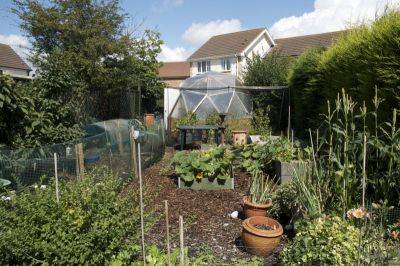
The Alternative Kitchen Garden: an A to Z
Buy Alternative Kitchen Garden from Amazon.co.uk Buy Alternative Kitchen Garden from Amazon.com Buy Alternative Kitchen Garden from the Book Depository

How to add a royal touch to your garden
I met the Duke of Edinburgh a few years ago. Shame I was stuck in front of a computer at the time, and not somewhere more exciting like the Chelsea Flower Show. Meeting human royalty might be a rare occurrence for most people, but you can surround yourself with royal plants and get that regal feeling every time you step into the garden. To illustrate my point, let me share with you an old joke….
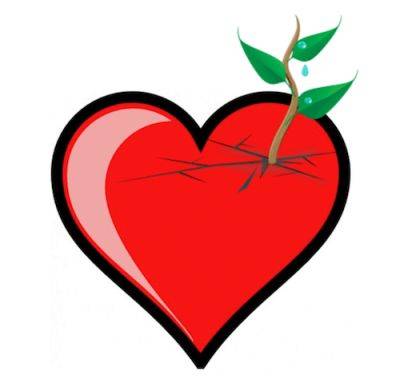
The garden in September
The garden and I have not spent much time together this summer. I’ve been busy… there was weather… there have been too many days when I didn’t feel like going outside. Since the courgette and summer squash started fruiting, I’ve been a bit afraid to go outside in case there’s a mountain of fruit to pick. But the light was nice this morning, so I ventured outside to take a few photos (and the squashes seem to be slowing down, so it’s safe).
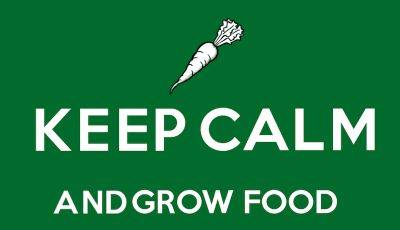
Grow your own egg & chips!
Grafting is a time-honoured technique for growing fruit trees – it allows gardeners and farmers to choose both the variety of fruit they want to grow, and the rootstock they want to grow it on. You can even graft more than one variety of fruit onto one rootstock, giving you a ‘family’ tree that saves space and spreads the harvest time, or gives you both ‘cookers’ and ‘eaters’ from one tree. Grafting vegetables, on the other hand, is something relatively new that has burst onto the home gardening scene in the last few years. Last year T&M gave us the opportunity to grow the TomTato, a tomato plant grafted onto potato roots that grows both tomatoes and potatoes – catchily nicknamed the Ketchup ‘n’ fries plant. This year they have added a new dual-purpose plant to their range: the Egg & Chips plant grows both aubergines (AKA eggplant) and potatoes.
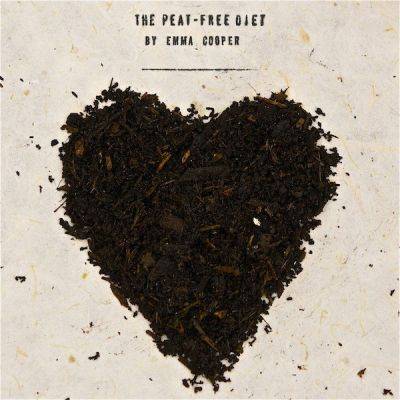
The Peat-Free Diet: Peat-free seed composts
An ideal seed compost is able to retain water, whilst at the same time letting excess water drain away to provide an environment that is damp but not waterlogged. It allows penetration of plant roots and is able to anchor plants, but has space for air. Its texture is consistent, and it is free from pests, diseases and weeds that would compete with the seedlings. As we have seen, it doesn’t need to contain many nutrients if seedlings are going to be pricked out; seedlings growing in modules will either need enough nutrients in the compost to support them through their first weeks of life, or suitable supplementary feeding.

On the Shelf: Nature’s Wild Harvest
Every month this year I’ve been trying to read one of the unread books on my shelf, and to then decide whether it gets to keep its spot or needs to be set free to find a new home. For June I chose Nature’s Wild Harvest by Eric Soothill and Michael J. Thomas. It was published in 1983, and has been sitting on my bookshelf for three years, since I bought it in our local secondhand bookshop (which only opens on Wednesdays).
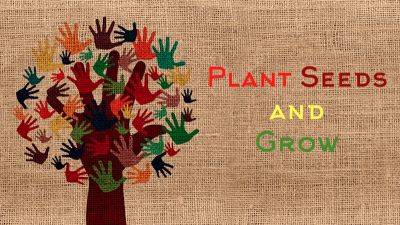
The Lady Garden
The Body Shop has announced that it is creating its first show garden at RHS Chelsea this year. It’s called The Lady Garden, designed to pay homage to its “founding feminist principles and activist roots”.

Grow Your Own Broom
There can’t be a more iconic symbol of Halloween than a witch riding a broomstick. In olden times it wouldn’t have been a problem to wander out into the woodland and cut a stout pole and then find sticks to make the sweeping end, and then you’d have yourself a fine broom, or besom. I suspect most of them were used for more mundane purposes – they are jolly useful things to have to hand.
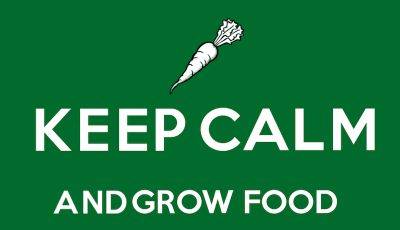
Grow your own duck food
Many years ago, long before my gardening obsession began, I spent a season or two living in a ground floor flat in Newbury that had patio doors that opened onto a backwater. Shortly after moving in we made friends with the local duck population, to the point where we bought poultry corn from the pet stall on the market for them – bread not being the best food for ducks.

The grass beneath our feet
The English obsession with grass came into being in the 17th century, when the close cut lawn was a status symbol of the rich. Only they could afford to take land out of production for purely aesthetic purposes, and maintaining a lawn before the invention of the mower was a highly skilled and labour-intensive process. The middle classes started growing lawns from the 1860s onwards, and the Victorian popularity for outdoor sports led to their proliferation. Grass species from the Old World were taken to America during this period, and the lawn took there over in the early 20th century. In 2005, NASA published research suggesting that lawns (including residential and commercial lawns and golf courses) were the single largest irrigated ‘crop’ in America, covering about 128,000 square kilometres. In 2013 there were upwards of 15 millions lawns in Britain, costing us £54 million in fertilisers and £127 million on lawn mowers.
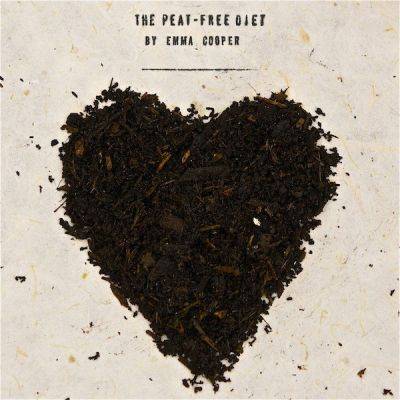
The Peat-Free Diet: Potting Compost
One of the big differences between now and the time before gardeners relied so much on peat-based composts is the rise in container growing. An army of modern amateur gardeners has to put up with small gardens, and possibly with no soil at all. Growing plants in containers allows us to garden wherever we like, and even to grow plants that would not thrive in our soil. Some plants are grown in containers to keep them under control; others so that they can be moved indoors in winter to ensure their survival.
